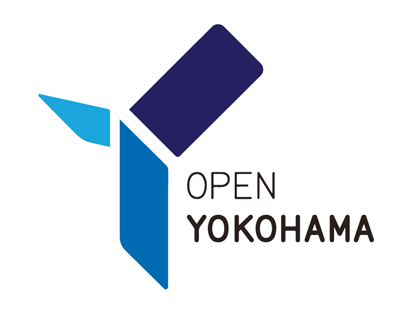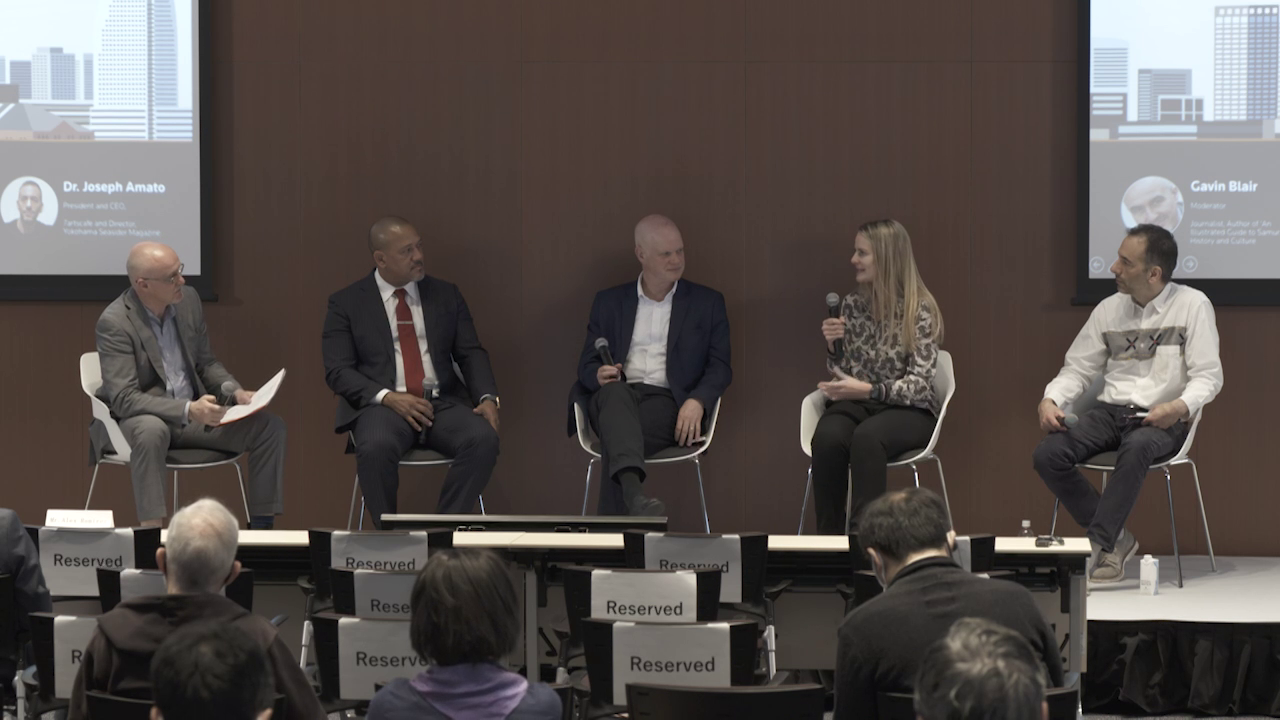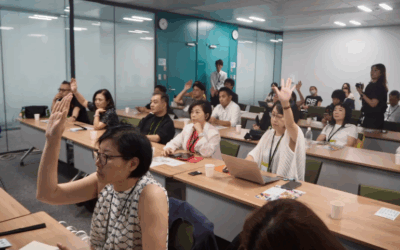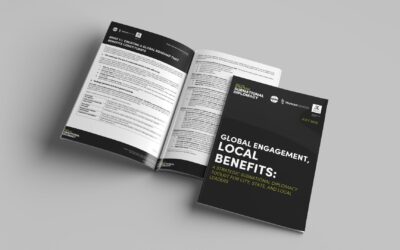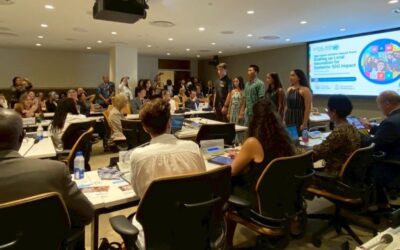Opening New Avenues: Yokohama’s Appeal for Business Ventures
Nestled along the picturesque shores of Tokyo Bay, Yokohama stands as a beacon of diversity and opportunity, beckoning entrepreneurs and professionals from around the world to explore the possibilities it holds for business and living in Japan. At a panel discussion during the launch event for the upcoming Y-SHIP Convention to be held from November 13-15, 2023, local figures and leaders explored Yokohama’s appeal to both locals and foreigners as a place to live and work, offering their valuable experience coming to Yokohama from abroad and starting businesses and families.
With its strategic location, business-friendly environment, and open-minded approach, Yokohama has emerged as a prime destination for those seeking to establish innovative ventures in Japan.
“I have started five businesses now in Yokohama, and there are a number of reasons for that”, said Stewart Harrington, Head of Japan Operations for Australian software unicorn company Atlassian, which has its Japan HQ in Yokohama. One of these reasons is the city’s strategic significance, with Harrington describing Yokohama as “not just a central point for Japan, it’s becoming I think a central point for all of Asia”.
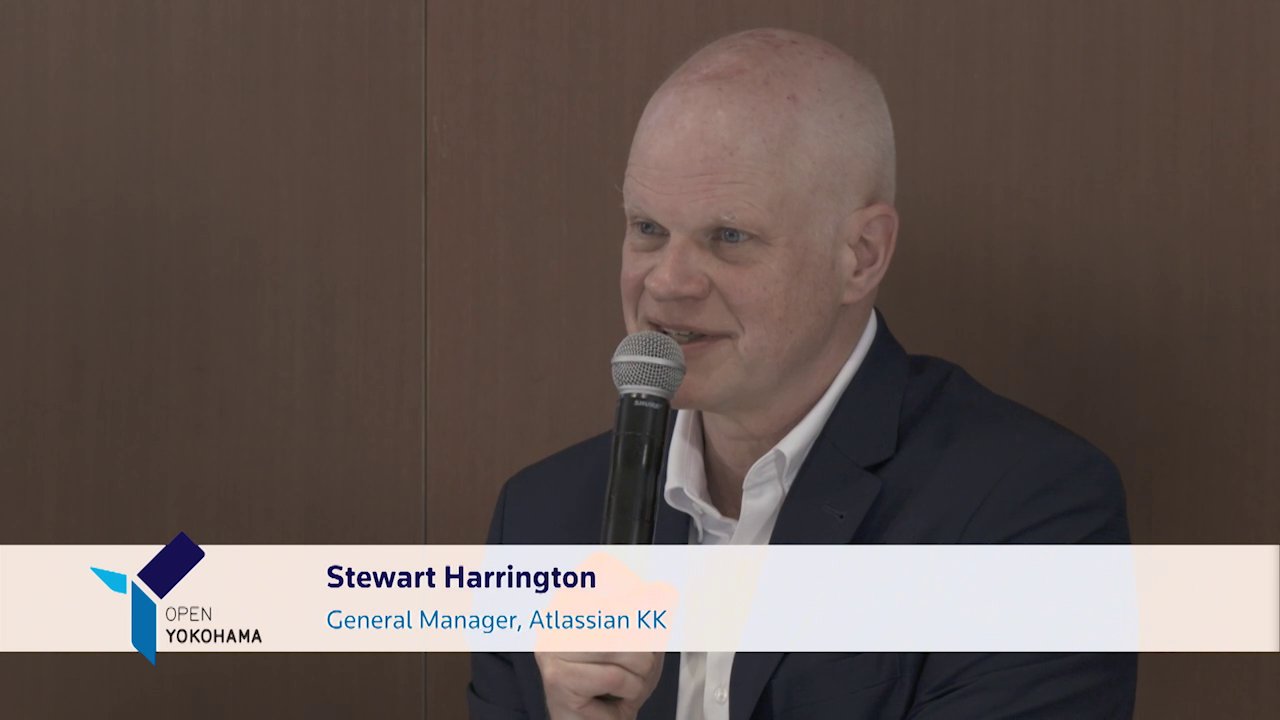
Harrington listed other reasons as well: “Office rents are cheaper than Tokyo, housing is cheaper than Tokyo, less commute time…for the students, so you can actually hire people for less money as long as they don’t have to commute to Tokyo”.
Joseph Amato, who runs the 7artscafe in Yokohama and the Yokohama Seasider bilingual magazine, explained the two major reasons why he had chosen to start a company in Yokohama.
Firstly, he noted the area’s activity and resiliency, saying of the Hinodecho area around his café, “Many, many small businesses have started in the last two years, even with COVID. It’s a thriving area.”
Secondly, he cited the city’s efforts to support new businesses, especially non-profit organizations (NPOs), saying “I’ve embarked on several NPO initiatives, one this year with the Seasider now moving to an NPO, and the city has really, really made wonderful progress to make it easier for those who’d like to start an NPO.”
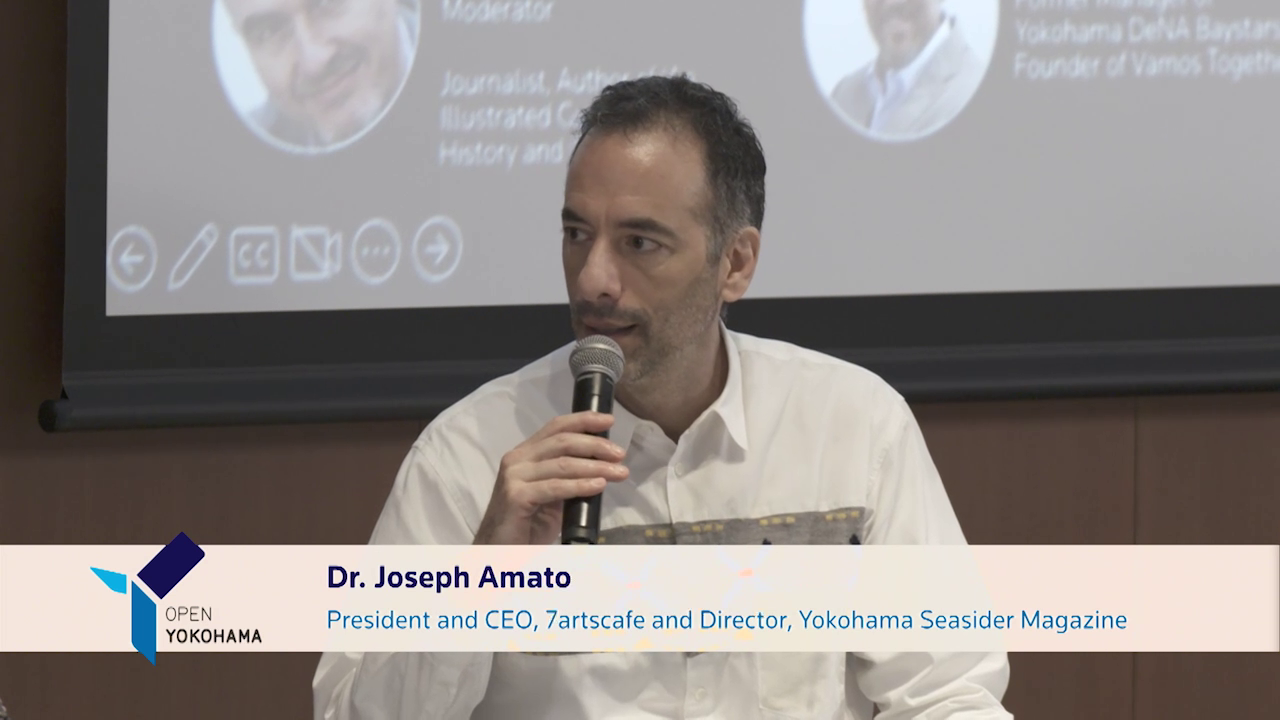
Amato also noted that Yokohama’s unique aspect that separates it from Tokyo and other Japanese cities is “diversity”. Harrington echoed this point of Yokohama’s diversity, noting that it’s a key factor for successful global innovation hubs.
“The one thing they really have in Silicon Valley is that diversity…They are completely accepting of everyone as long as you’re really good at what you do and you work hard.” He continued, saying “I think a big advantage that Yokohama can play with and promote, is that diversity card.” He also compared Yokohama to other innovation hubs in Asia as well, mentioning Singapore. “I think Singapore is very diverse too, but I think Yokohama is a city that can compete with Singapore on that front”.
Forging Connections: Yokohama’s Legacy of Inclusion and Diversity
“Yokohama is known for being a welcoming city with a cosmopolitan atmosphere and a big International Community,” noted celebrated author and journalist Gavin Blair during the panel.
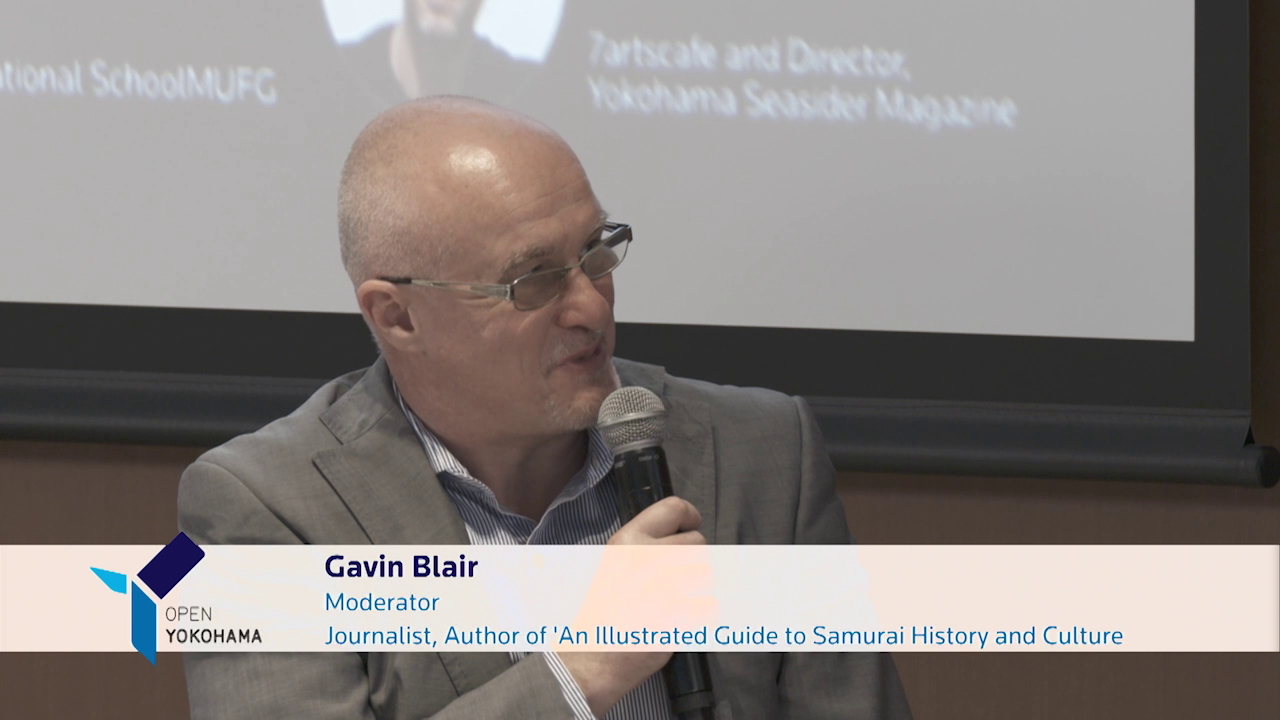
As the first port in Japan to open its doors to foreign trade in 1859, Yokohama boasts a rich history of welcoming international ideas and people. Blair brought up the fact that Yokohama is nationally a “City of Firsts”, as it was first place in Japan that accepted and implemented many new ideas and cultures from abroad. “Too many to mention,” Blair said, noting that Yokohama had Japan’s “first newspaper, first Chinatown, first beer making, first gas street lamps, first railway station, power plant, and more.”
This legacy of openness to international ideas and peoples has not only defined the city’s identity but has also set the stage for a thriving multicultural population in Yokohama. The array of communities that call Yokohama home speaks volumes about its diversity and welcoming nature, and the early presence in Yokohama of many international immigrants from around the world and its being the first place in Japan to accept new international ideas has led to the city being built from the ground up, quite literally at times, by a collaborative global community.
“Yokohama has been destroyed three times, but was rebuilt. I think this is the effect of the foreigners being here,” continued Amato, “especially after the earthquake, especially after the fire bombings. Foreigners were always here, rebuilding the city, and making it was it is today.”
In Yokohama you’ll find neighborhoods that resonate with the warmth of international cultures. During the discussion speakers called out the diverse communities in Yokohama, including its vibrant Chinatown, and its large and growing Korean, Russian, Vietnamese, German, Thai communities, and more. Yokohama showcases a tapestry of global influences that coexist harmoniously, and the diverse cultural backdrop has cultivated a unique atmosphere of acceptance, where different ideas, lifestyles, and traditions are embraced.
Yokohama’s atmosphere of acceptance extends beyond solely a diversity of cultures, to an acceptance of a diversity of all peoples. Alex Ramirez was another speaker on the panel, and is a famous baseball icon in Japan, the former manager of the Yokohama DNA BayStars baseball team, founder of VAMOS TOGETHER, and the first Yokohama Global Partnership Ambassador—an award bestowed on those who have made significant contributions to the development of Yokohama and its promotion to the world as an international city.
Although Ramirez had been living in Tokyo for 16 years and never expected to live in Yokohama, he explained how he chose to move to Yokohama for his son, “[My son] has Down syndrome…and Yokohama opened the door for me and my family to be able to come here and put him in school here.”
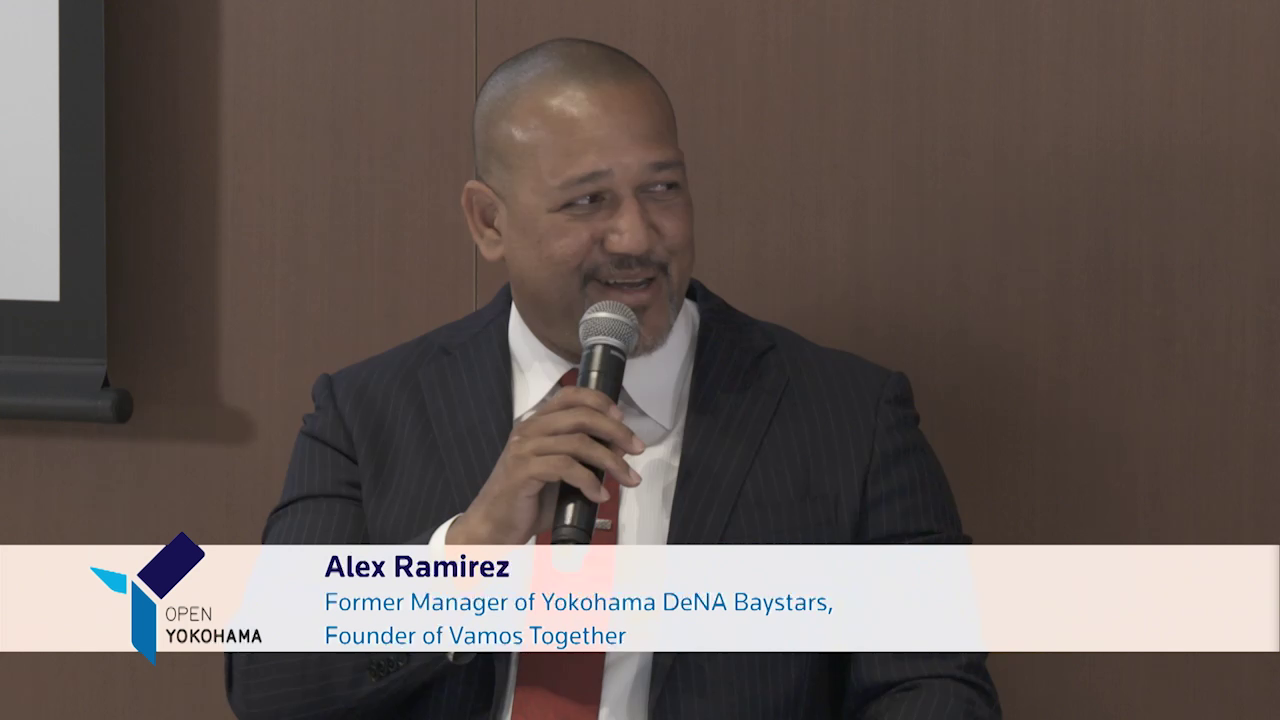
“Yokohama is a very family-oriented place, the schools are great, it’s a global city,” continued Ramirez. “The level of education here, the level of the people, their understanding… They’re more flexible than they are in Tokyo. That kind of opened the door for us.”
New Beginnings: Yokohama’s Opportunities for Families and Education
This inclusiveness for families was echoed by Christina Fürstenau, Director & Marketing and Communications at Saint Maur International School in Yokohama.
“For all families moving to a new city or country, their children’s education will be one of their biggest concerns,” Fürstenau said, “We’re actually so lucky in Yokohama that we have all these great schools. They’re amazing: Japanese schools, amazing international schools, other foreign schools, for example the German school, Chinese schools, and so on, you name it. There are so many opportunities.”
When asked about the diversity at Saint Maur International School, Fürstenau said, “We have about 45 different nationalities…Some of [the students] have three different nationalities, and they speak so many different languages. They might have one German parent, one Japanese parent, and they speak German and Japanese at home, and then they come to Saint Maur and they speak English all day but maybe they also have French classes. It’s very diverse.”
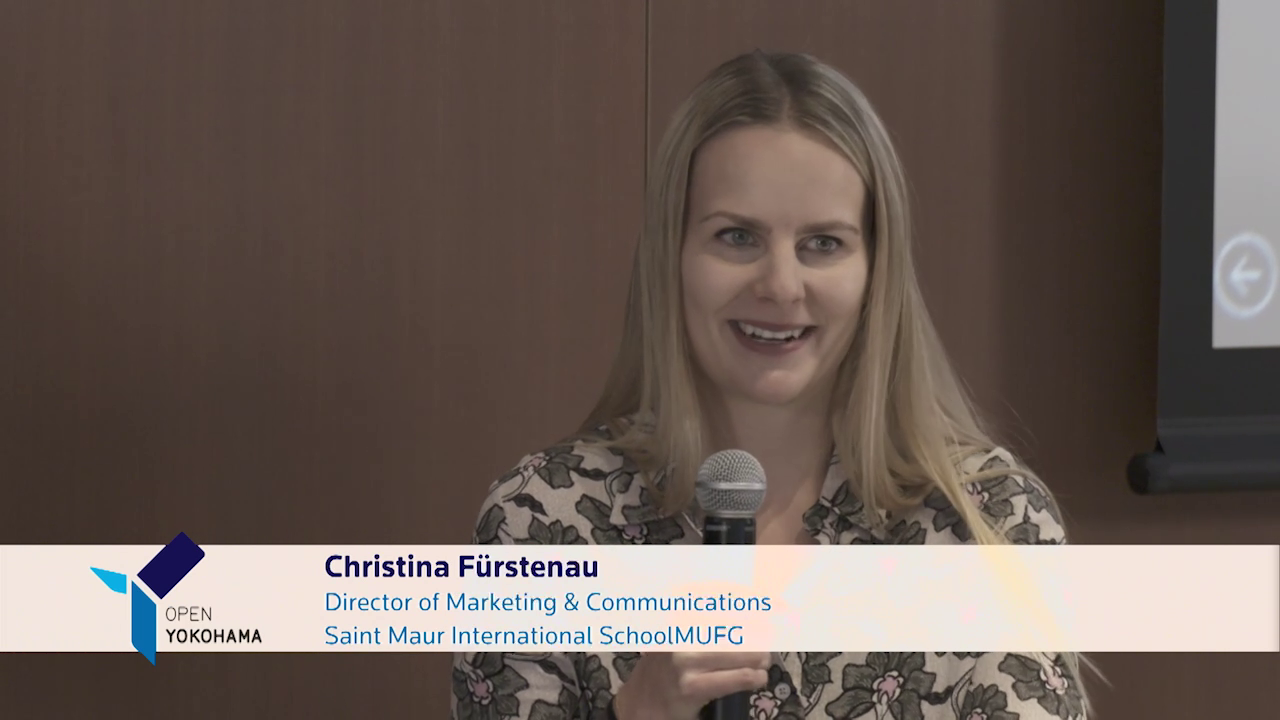
The other speakers chimed in as well on the education topic, with Harrington and Amato both speaking on their experiences with attending or working with international schools in Yokohama such as Saint Maur and Yokohama International School (YIS) and the impact they have had on their families.
“My father was head of the PTA at YIS, back in the day. He taught my daughter music. My wife teaches at Saint Maur, my sister used to work at YIS, and my brother-in-law still teaches at [YIS],” said Harrington. “[There’s] a long history of international schools here. I think they’re all good. It’s amazing, with 45 nationalities you become very accepting of everything, right?…I think the kids become very accepting of so many different things at the same time. It goes beyond math and science and all that; culturally they grow into very mature people by the time they’re 18 years old.”
“I started the Japanese music program at Yokohama International School, and last year was my last year,” said Amato, noting that this school also had “a diverse student body, [and] diverse faculty coming from all over the world. So not just for students or for families coming in to have their child at an international school, but…for faculty, for teachers, educators that would like to come and teach, YIS and Saint Maur are top-tier schools. So that’s an attractive aspect to want to live in Yokohama.”
“Most of the kids speak two or three languages, right?” chimed in Ramirez, “Yokohama is getting so many companies from outside [Japan]. These kids will be able to graduate from the international school speaking three or four different languages, and they’re going to be able to find good jobs at these companies and will be able to help these companies that come from outside [Japan] and come to Yokohama to establish their business here. I think that’s a very good situation.”
From Diversity to Innovation: Yokohama’s Path to a Livable Future
It’s no secret that the convergence of various perspectives fosters innovation. Yokohama’s embracing of diversity and its willingness to celebrate different backgrounds have translated into a city that thrives on innovation. This spirit of collaboration and idea exchange has given rise to a dynamic environment where creativity flourishes, making it an ideal breeding ground for startups and forward-thinking ventures. During the panel discussion, the point was raised that Yokohama City offers close support for entrepreneurs looking to start their own business, and is constantly working to improve that support to meet the needs of international innovators.
Beyond its business prowess, Yokohama also shines as a city that offers an exceptional quality of life. With a wealth of international schools, cultural centers, and recreational facilities, it’s a place where families can thrive and professionals can balance work with leisure seamlessly. The ease of commuting, coupled with the city’s welcoming atmosphere and diversity, makes it an attractive proposition for those looking to relocate, and there are many opportunities for families to join local communities and prosper.
Yokohama’s journey from being the entryway of international trade to becoming a hub of diversity and innovation is a testament to its timeless spirit of openness. As a city that warmly embraces change, Yokohama continues to attract individuals and businesses seeking to be part of its dynamic landscape. With its rich history, inclusive culture, and vibrant business scene, Yokohama stands tall as a beacon of livability and opportunity in Japan.
The upcoming Y-SHIP Convention in 2023 builds on Yokohama’s history as a port city, its diversity and acceptance, and its innovative landscape to welcome international innovators looking to do business in Japan to demonstrate their technologies, products, and make important connections. Yokohama is excited to again welcome international pioneers, as it has done for so long, through this new convention, and we encourage all global innovators and pioneers to attend the Y-SHIP 2023 Convention from November 13-15.
Links:
Y-SHIP Convention 2023 (November 13-15)
Watch the full panel discussion below (Starts at 55:40)
